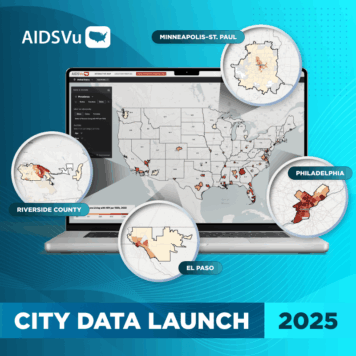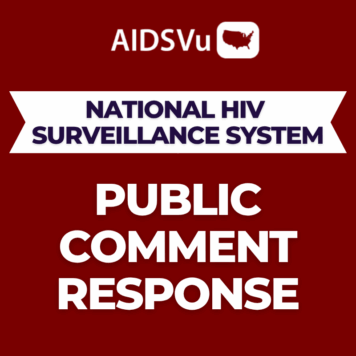Whitney Irie, MSW, Ph.D., is an Assistant Professor in the School of Social Work at Boston College. Dr. Irie’s primary research focuses on equitable access and effective implementation of biomedical HIV prevention strategies such as preexposure prophylaxis (PrEP) for Black Women in the United States.
Q: You primarily focus on biomedical HIV prevention strategies for Black women, but you have chosen to approach this from a social work perspective rather than an epidemiological one; what led you to this work?
I became a social worker to focus on relationship, intimacy, and sexual trauma healing for Black couples and families, but I was drawn to research early in my MSW program at UNC-Chapel Hill. Social justice and equity, central to social work’s values, grounded my approach to serving communities through scientific inquiry and advocacy. Social work brings humanity to the forefront, acknowledging historical and sociological dynamics. Unlike public health, social work integrates marginalized viewpoints, offering a holistic perspective rooted in equity and justice. This lens motivates me daily. When PrEP emerged during my PhD program, I doubted its reach to Black American women. My mentor, Dr. Rupa Patel, encouraged me to establish a Biomedical HIV Strategies for Black Women community advisory board in St. Louis to learn and understand the determinants of PrEP engagement and that is where my journey began.
Q: Studies have shown that PrEP use has been effective at lowering the number of new HIV diagnoses overall in the U.S. population, but some populations are not seeing that kind of progress, including women. Your research suggests this is even more dire when looked at from a regional perspective, noting in your recent study, “Just the Stigma Associated with PrEP Makes You Feel Like It’s HIV Itself”: Exploring PrEP Stigma, Skepticism, and Medical Mistrust Among Black Cisgender Women in Urban and Rural Counties in the U.S. Deep South that, “In the Deep South, Black women have the lowest PrEP uptake rates among all US regions.” What did you find accounts for this?
PrEP gives us an opportunity to wrestle with important social realities, such as intersectional marginalized identities. In this recent study, we found that even before PrEP, there was this insidious context of heavy stigma, miseducation, lack of education, and gendered power dynamics. When PrEP came on the scene, there was an assumption that because it’s a pill, it would be devoid of that context—that you won’t have to deal with stigma or gender dynamics, no one has to know you’re taking a pill, you don’t have to tell your partner. We were wrong, people want to talk about PrEP with their partners and people care what others think about their PrEP use.
This study unearths the reality that stigma is still very pervasive—not just around PrEP, but around HIV, sex, and sexual health in general among women in the Deep South. A lot of systems perpetuate that stigma, and there are policies that make it hard for youth to access sexual education, and there’s mis/distrust because of contemporary and historical events. All that together has created very firm and multi-component barriers to even considering PrEP.
Q: What interventions did your study find most effective in countering the stigma associated with PrEP use among Black women in the Deep South?
Unfortunately, we lack multi-level interventions designed to address these specific barriers for Black women in the Deep South. A new and exciting intervention is the UPDOs study in North Carolina with Dr. Schenita Randolph. There are pharmacy-led interventions led by Dr. Natalie Crawford, trauma-informed interventions being developed by Dr. Tiara Willie, motivational interviewing and PrEP developed by Dr. Sannisha Dale, adding PrEP to the existing EBI SISTA is being developed by Dr. Shawnika Hull, and mHealth/tech-based interventions developed by Dr. Rasheeta Chandler. Other implementation science studies are nurse-or-peer-led and designed to “task shift”—to shift the PrEP delivery model from doctors only to other types of healthcare providers, like nurses or community members. I am currently funded by the Harvard University Center for AIDS Research to design and pilot an intervention for Black women’s rapid linkage to PrEP in GYN settings called, LinkHER.
I want to emphasize PrEP education because a lot of existing interventions for Black women are about improving PrEP awareness and knowledge. That’s because Black women in the South are still largely unaware of PrEP. Knowledge and positive social norms are the antidotes to stigma, so if we are going to overcome HIV and PrEP-related stigma in any way, we must ensure that we have multiple avenues and delivery methods of education being deployed.
Q: Did you find that medical mistrust played a role in any skepticism or hesitancy to use PrEP among this population?
Medical mistrust was a central finding in this study. To be clear, it’s not like people wake up with conspiracy theories about HIV, medicine, or healthcare settings. Contrarily, people want to believe that the healthcare system and providers have their best interests in mind. But when it comes to sexual and reproductive health, there’s a reluctance to really believe that they can have full confidence in providers, and it doesn’t come from nowhere. Black women can point to historical, intergenerational, or personal evidence that shows that when they are in this care space, there is a chance they might be harmed or not taken care of in a meaningful way, whether or not the provider is aware of it.
Q: Were there any ways of receiving PrEP or places where the women in your study indicated they would be more comfortable taking it, such as pharmacies, community, centers, in the home, or churches?
The “where” question has been interesting in this current study. What we have observed across the board is that Black women make it clear they want to receive PrEP where they receive care, despite the presence of skepticism and medical mistrust.
This tells us that there’s an expectation that care in those healthcare spaces is going to improve—that healthcare systems are going to wake up and be more inclusive, culturally aware, and sensitive—and that these systems of care will center the needs of Black women in the communities they represent. That’s why Black women continue to say, I don’t want to get PrEP on a roof, in a hat, with a cat, in a bed, on a train, in the rain. I’m already going to the doctor, so I want to receive this type of care from my doctor.
However, to date, we still are not seeing a universal engagement by providers to talk to cisgender women about PrEP. One of my recent articles in JAMA is a commentary where I talked about how providers need to engage women in PrEP. I would’ve thought that Black women wanted an Amazon drone to deliver PrEP on their porch. The reality is that when you sit down with women, they want to receive PrEP from their doctor. Now we have to focus on improving the quality of care and universal offering of PrEP, and turning our attention to these care settings to plant the seeds for PrEP so that Black women can know it’s a viable option for them.




